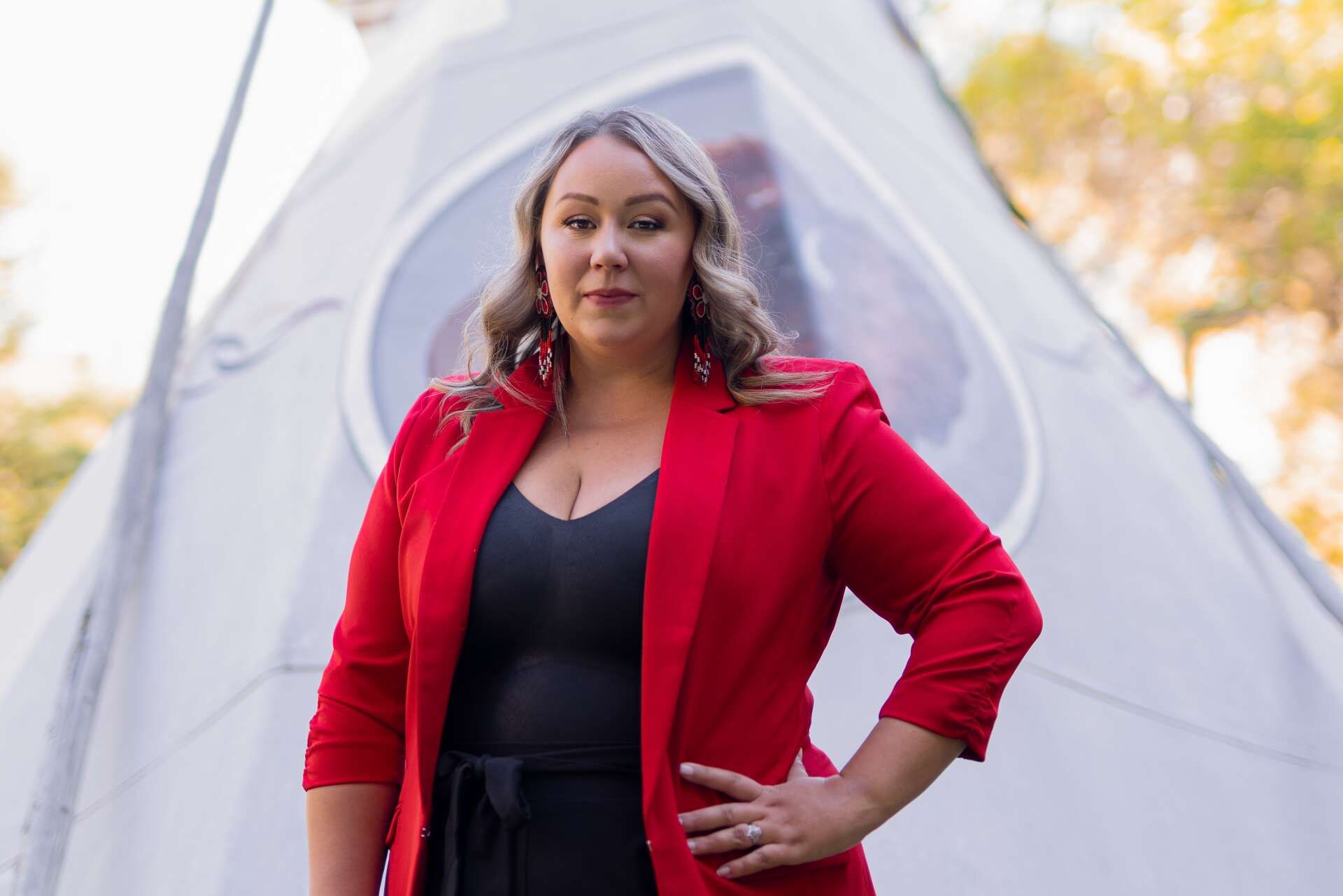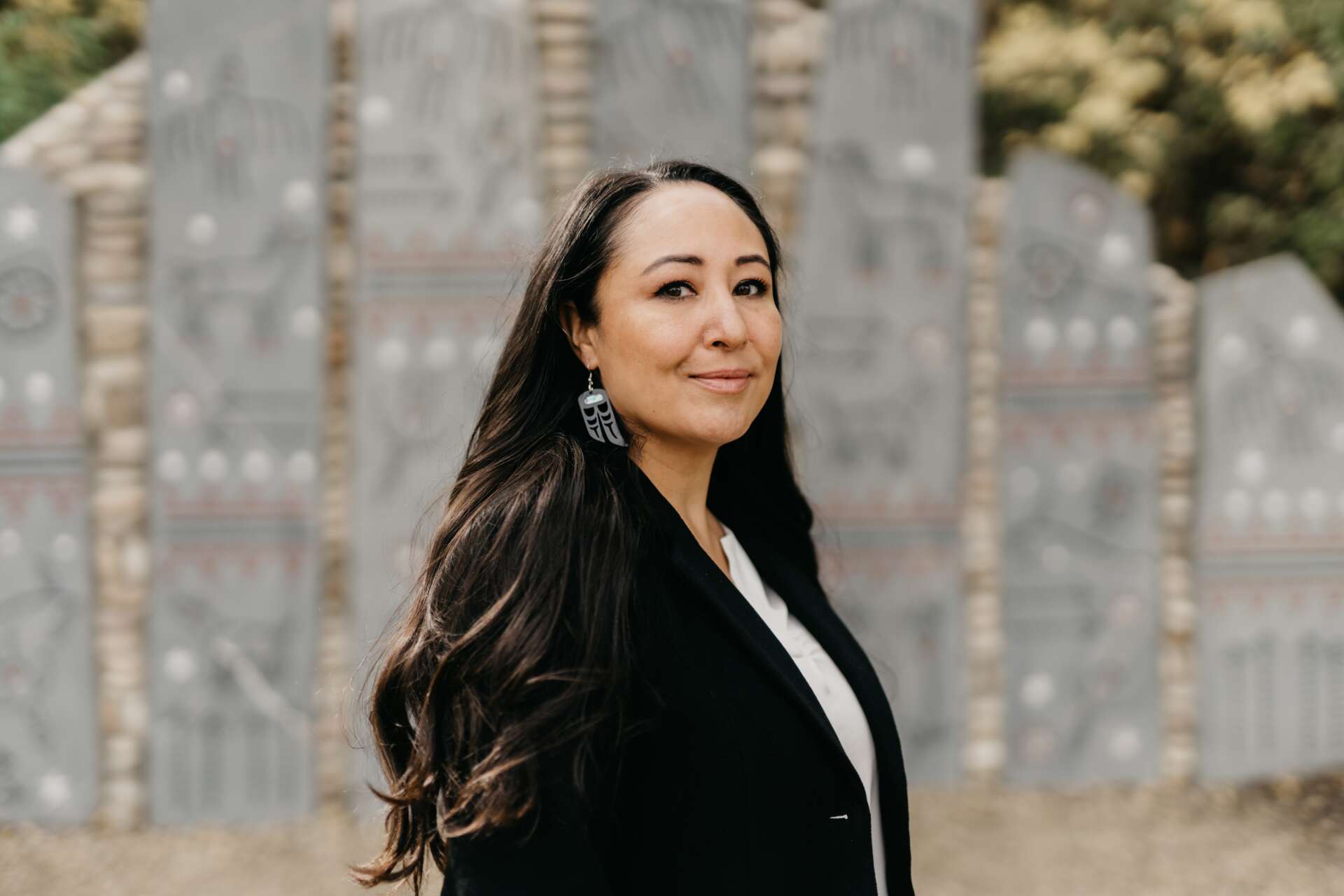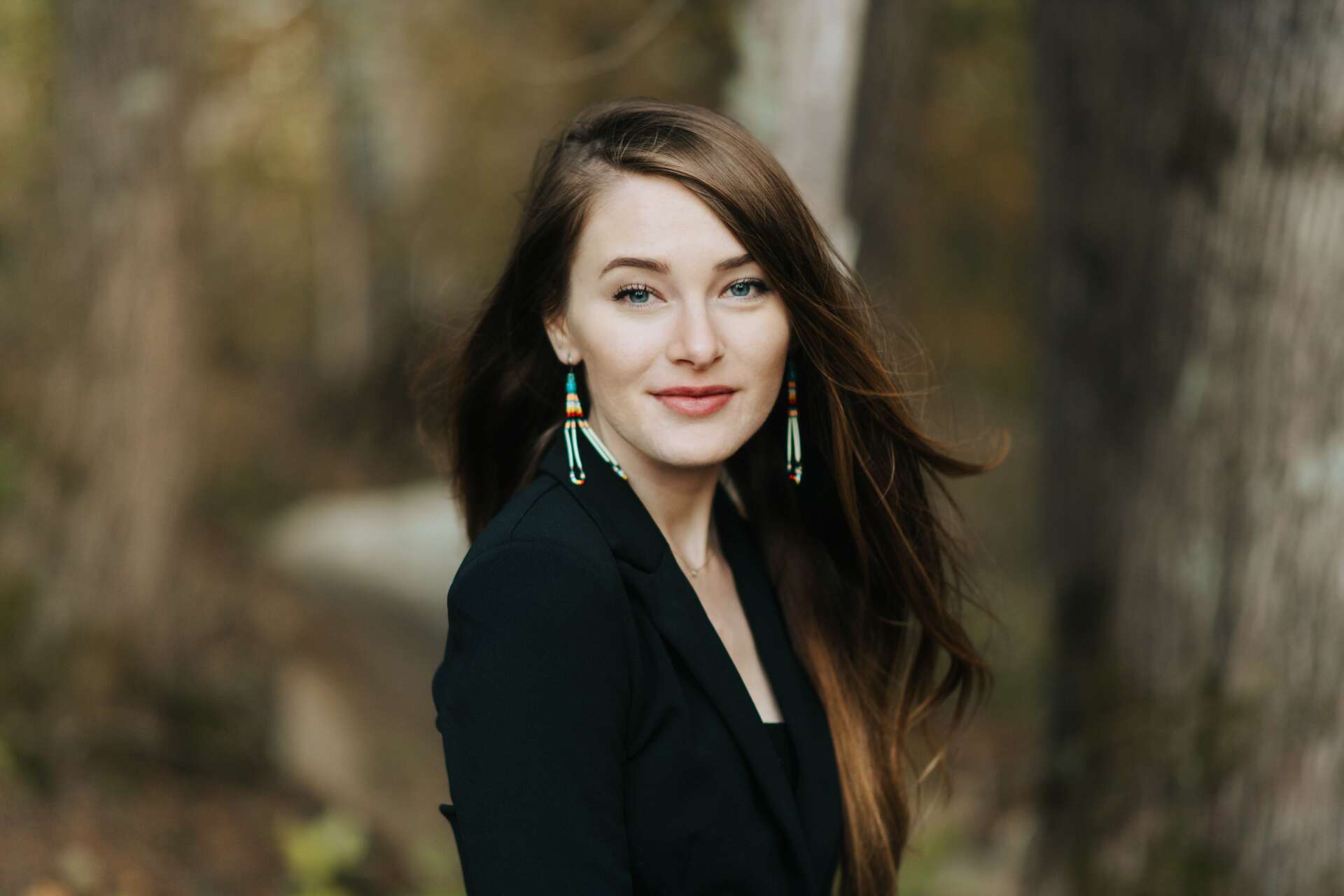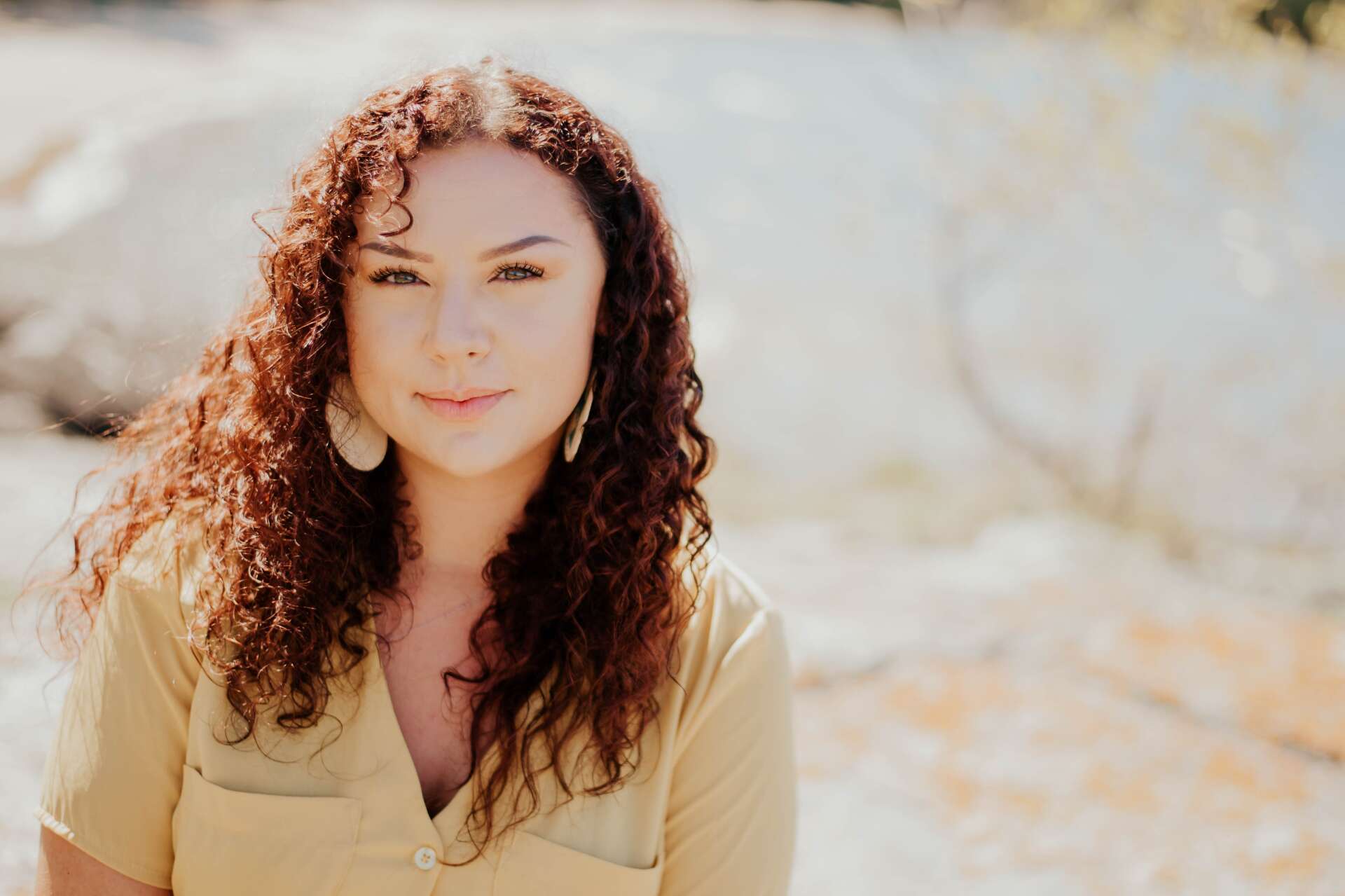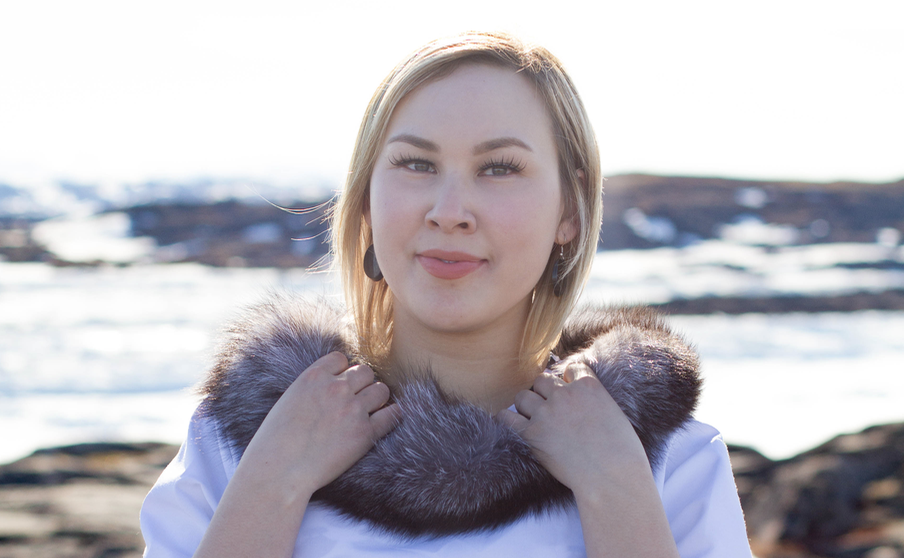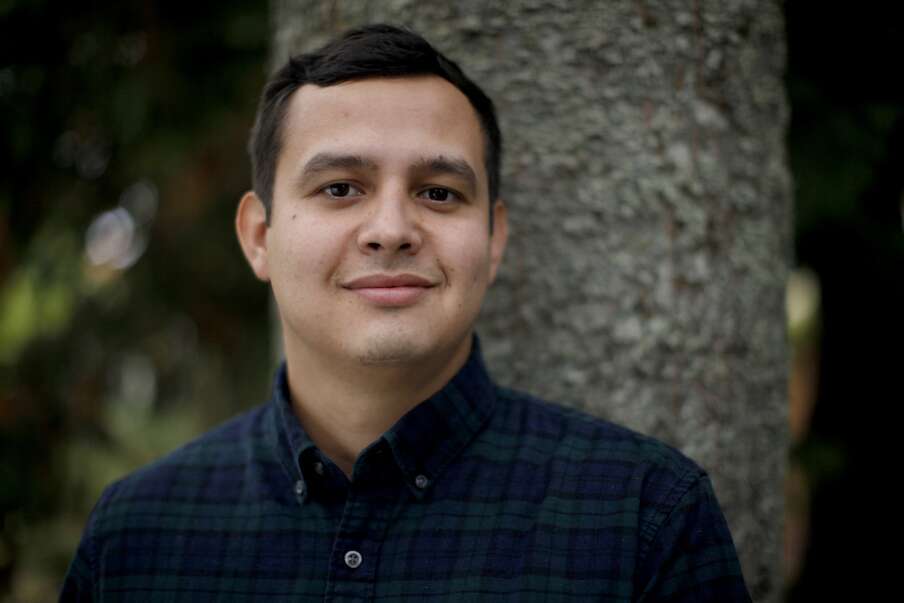Winner
Raven Richards
Raven Richards is a mother and law student from the Opaskwayak Cree Nation. Having grown up in her community, Raven has been privileged to live and understand the strengths and challenges many Indigenous communities experience and is keen on using her community and legal perspectives to help her future clients achieve their goals. Her favourite pastime is embarking on new experiences with her three young sons. This fall of 2023, Raven is enrolled in her third and final year of the Juris Doctor program at the University of Manitoba’s Robson Hall Faculty of Law.
tanisi,
I would like to express my gratitude to First Peoples Law for making this scholarship available to Indigenous students. I feel incredibly honoured to have been selected as this year’s recipient. Offering this scholarship is a generous investment in the future and prosperity of Indigenous people – whom I and many other soon-to-be Indigenous lawyers anticipate working with and for.
From a young age, it has been my priority to work in a role where I can contribute to the advancement of Indigenous people’s collective interests. I am entering the profession during a transformative time where the autonomy of Indigenous nations is becoming increasingly prevalent, and the revitalization of Indigenous laws is often at the fore of this work. Our nations are inherently equipped with our own distinct cultural attributes, legal orders, governance structures, and communal knowledge bases, and I look forward to working with nation clients to draw from these systems to address and support contemporary needs.
This scholarship will significantly help me to reach my goal of returning support to the Indigenous community, as my own community has taught, influenced, guided, and inspired me throughout my life.
tapwe kiche
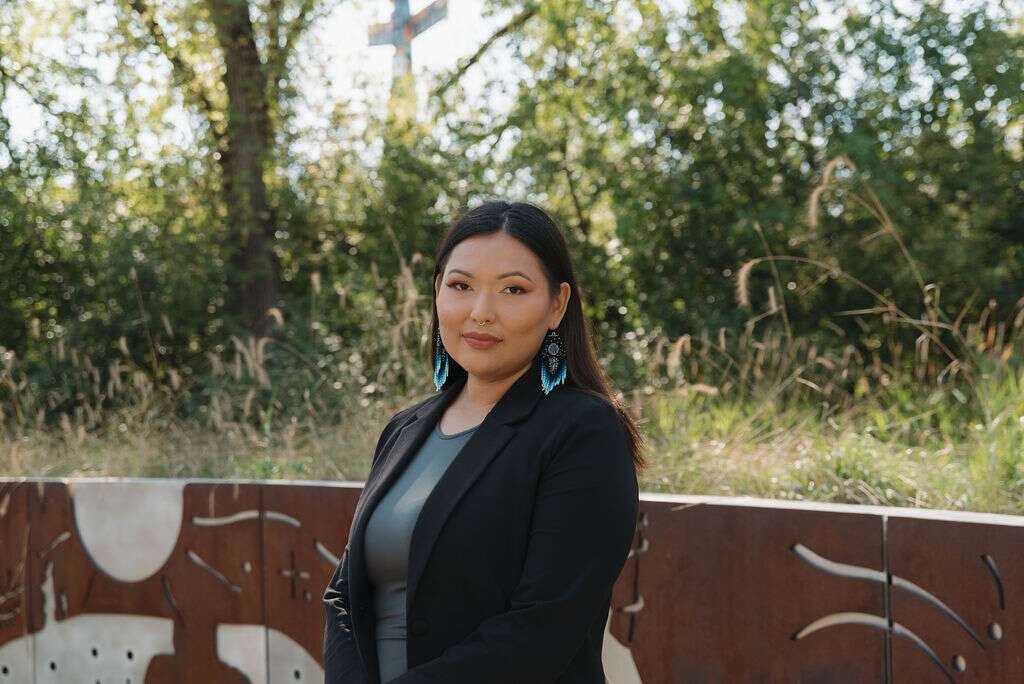
Photo Credit: Gin Ouksun Photography
Finalist
Sophia Sidarous
My name is Sophia Sidarous and I am Mi’kmaq from Metepenagiag First Nation. I am in my third year at the Schulich School of Law at Dalhousie University, and bring forth a special perspective as a protector of my Nation against all that encroach upon our rights, freedom and dignity. I am very motivated to revitalize traditional Mi’kmaq laws and structures, which can provide a new but ancient way to deal with complex issues for self-government and determination of all Nations. I am very grateful to be honoured and recognized by First Peoples Law, and to stand alongside the winner of this year's award.
Wela’lioq!

Photo Credit: Nicole Lapierre Photography
Honourable Mentions
Tyler Ermineskin
Tansi,
First, I will open this space by locating myself as an Indigenous man who is of Nehiyaw/Cree descent. I come from the traditional territory of Treaty Six; specifically, Neyaskweyak/Ermineskin Cree Nation. Further, my English Name is Tyler Ermineskin; and my Cree name is Nihkamo Pehyesis which means Singing Bird; this is significant to my place and relation to the world around me as I have always been comfortable in changing my environment and holding steadfast to the vision given to me from Kisemanito (God). My past experience and my current work is in the areas of Treaty, Governance, assertion of Nehiyaw rights (given from Kisemanito) and Rights of the Indigenous Child. As shown, when I was honoured to lead my Nation in the areas of industry, social programming development (In Treaty Six and Seven), child law development (under the Act former Bill C92) and the recent acquisition of the highest shares in a schedule 1 bank. I have attended the 83rd and 84th sessions of the Committee on the Rights of the Child at the United Nations in Geneva, Switzerland as an advocate and as a speaker. It is truly an honour to be chosen as an Honourable Mention with First Peoples Law and my prayer is that more Indigenous people take up space in these areas.
Ninanâskamon
Jaxxen Wiley
St'li kwunnus uy' huy'ch'qa First Peoples Law. I' tsun sme'thun I'tsun uy honourable mention. Hwunitum Nas Sne, Jaxxen Wylie, Hul'q'umi'num Hwulmuhw Nas Sne, Sialhton exwe'et suniw tu thi lelum. Tu ni tsun utl Stz'uminus First Nation i' snuneymuxw i' Cedar. St'li kwunnus tuymt JD/JID Education hwu-alum snuwuyulh exwe'et mustimuhw i' jurisdiction sc'u'ce qa' i' tumuhw.
I want to say a good thank you to First Peoples Law, as I am proud to be included as an Honourable Mention for this award. My white guy name is Jaxxen Wylie, and my Hul'q'umi'num peoples name is Sialhton which was given to me in the Big House ceremony. I am a member of Stz'uminus First Nation and grew up on our traditional territories in what is now called the Cedar district of Nanaimo and in Snuneymuxw territory in South Nanaimo. I hope to use my JD/JID Legal Education to help in the return and revitalization of our Coast Salish Legal Order and jurisdiction on our lands and waters.
Mayhève Rondeau
Waciye, my name is Mayhève Clara Rondeau (she/her) and I am a member of Moose Cree First Nation in Treaty 9 territory. I am Cree through my mother and French through my father. I am in my second year of the JD/JID program at UVic, and I didn’t even consider law school as a possibility for myself growing up. I now work to empower other first-gen and Indigenous law students through my Outsider in Law initiative. I’m also drawn to Indigenous Health Governance and human rights. I am unsure where exactly this law school journey will take me, but I know I will use my voice to advocate for Indigenous folks, Nations and organizations. I am honoured to stand alongside this year's winners - thank you First Peoples Law for the honourable mention and for supporting Indigenous students throughout their legal journeys.



